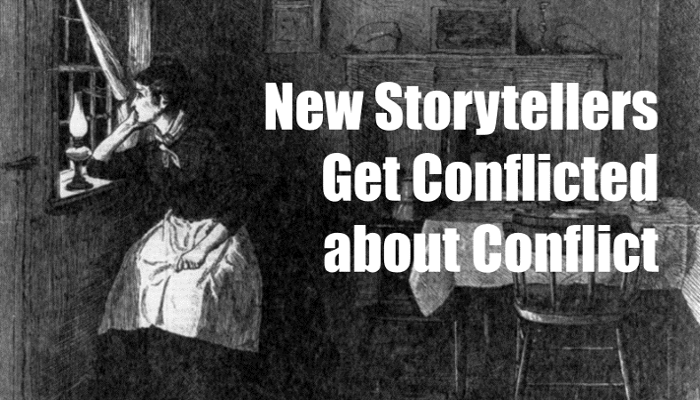
Last week, I came across a screaming little boy in a grocery store aisle. Although I didn’t know all of the details, it wasn’t hard to piece together that his Mom triggered the meltdown by refusing to buy him something. And so there he stood, defiantly proclaiming his dissatisfaction with alligator tears streaming down his reddened face.
Can you remember a time when you felt that way? A time when you wanted something so badly that it felt as if your body would burst? Perhaps, like the little boy, you were being denied a toy. Perhaps you felt embarrassment or regret as the result of a mistake? In each of these cases, you experienced internal conflict.
All stories have conflict, but most inexperienced storytellers mess it up through misinterpreting the following statement: “A story is about characters in conflict.” They take the advice too literally, defaulting to the colloquial story of a protagonist battling with an evil antagonist. In other words, they spend more time focussing on the events of the conflict instead of the actual source of it.
Internal conflicts are frequently more powerful than external conflicts. For example:
- A woman wants a moment with her family to last forever.
- A college student, far from home, longs to see his family.
- A proud old man refuses to ask a nursing aide to steady his shaky hand while he raises a glass of water to his thirsty lips.
All are forms of conflict that involve just one character.
Customers experience internal conflict all the time, but new business storytellers overlook them by focussing on the more apparent external versions:
- A manager that won’t release budget
- The valuable employee quits in the middle of a project, leaving the team vulnerable
- A competitor slaps your company with a patent infringement lawsuit
And while all of these external impediments offer great sources for conflict, don’t settle on one until you’ve had a chance to review internal conflicts, too.
- A prospect has the budget, but for some inexplicable reason refuses to spend it.
- A prospect decides to hire your company but fears the political ramifications of the choice.
- The contract must be signed today, but your customer believes that it’s bad luck to sign a contract while Venus is in retrograde.
Average storytellers find what their protagonist wants. Good storytellers determine the barriers to achieving that want. Great storytellers, however, examine all potential sources of conflict–from internal to external.
Photo Credit: Waiting. 1875. Image. Retrieved from the Library of Congress